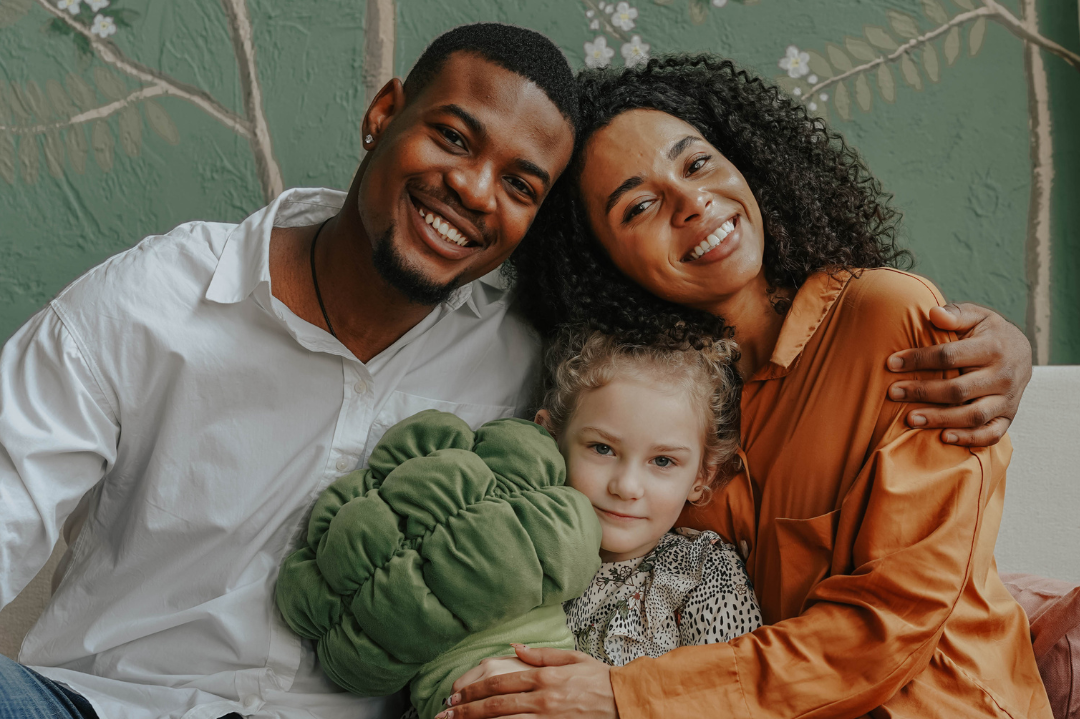Share This Story, Choose Your Platform!
The Importance of Early Adoption Disclosure: Nurturing Identity and Trust
Families can be formed via adoption, a powerful act of love and compassion that transcends blood ties. In the midst of the beauty of this process, adopting parents must make a crucial choice on whether to tell their child they were adopted from an early age. This choice has significant effects on the child’s sense of self, emotional health, and the dynamics of their future relationships. Early adoption disclosure is based on the idea that openness and honesty establish the groundwork for a child’s healthy growth, whereas delayed disclosure can result in complicated problems and emotional upheaval.
Early adoption disclosure is based on a dedication to openness and transparency. The idea behind this strategy is to integrate the adoption story into a child’s life from the very beginning, avoiding any potential shock or feelings of betrayal that might result from learning this information later in life. In this setting, adoption is embraced as a special and lovely part of the adopted child’s life narrative rather than being veiled in mystery.
Children start to construct their knowledge of the world around them as early as infancy. A child’s identity is nurtured by early adoption disclosure by giving them a comprehensive and accurate account of their life’s beginnings. Their sense of self-worth and belonging are strengthened as a result of their ability to confidently accept their story thanks to this understanding. Children who are raised with knowledge of their adoption, experience a sense of continuity between their past and present, which helps them develop a positive self-perception. By accepting their special journey, people can forge a strong sense of identity and a compelling story that enables them to respond to inquiries about their ancestry without experiencing internal struggle.
Conversations about adoption most often occur informally, at times and in place between other activities: in the car, at bedtime, on walks. Children express their concerns precipitously, erupting like volcanoes. A question seems to appear from nowhere. Building a safe space where inquiries are welcomed and accurate responses are provided – even in those in-between times, contributes to the development of trust and understanding. In adolescence, when adolescents may be struggling with issues of identity and self-discovery, this foundation is essential. When a child is aware of their adoption from an early age, they are more likely to come to their adoptive parents with questions about their birth parents, curiosity about similarities and differences or how to answer peer’s questions about their adoption. It is also important to respect the child’s privacy, and let the child choose whom they are willing to tell and when.
Delayed adoption disclosure can make a child feel shocked and betrayed when they eventually discover the truth. Their new reality may cause severe emotional discomfort, and possibly even a sense of abandonment. Late-life adoption disclosure can cause a child to experience a severe identity crisis as they attempt to reconcile their history and present. As they struggle with the revelation that their fundamental self-understanding was incomplete, this emotional turbulence can result in feelings of rage, perplexity, and even feelings of sadness and loss.
The trust between a child and their adopted parents might be damaged by delayed adoption disclosure. This betrayal of trust may have long-term effects on the child’s capacity to establish trusting relationships and manage them in the future. A person’s health profile must include both genetic and medical history information. The adoptee may be deprived of vital medical information due to a delayed adoption disclosure, which makes it challenging to detect and treat any potential genetic health issues. This ignorance might have an effect on their general health and way of life.
A recent study reveals the possible outcomes of revealing the adoption status to adoptees after the age of three. The result suggests that it could have a negative impact on the child’s future life satisfaction and mental health.
Many adoptive parents fear early adoption disclosure – but if the parents take the emotional maturity of their child into consideration, communicating this natural event to their young children should empower the adopted child to integrate their unique story into their identity. Here are some pointers to initiate and navigate the conversation:
- Normalise Adoption Conversations: From a young age, start having age-appropriate conversations about adoption with your child. Talk about it frequently so that it becomes a natural part of their comprehension and vocabulary.
- Age-Appropriate Truth: As your child gets older, tell them more in-depth stories about their adoption (how painful it might be), making sure the details you offer are appropriate for their stage of development.
- Celebrate Uniqueness: Acknowledge and revel in the originality of your child’s narrative. Make sure they understand how important it is to their identity and how it adds to their uniqueness and beauty that they were adopted.
- Listen and Validate: Provide your child with a secure environment where they may share their views, express their emotions, and ask questions. Actively listen to them and acknowledge their emotions to reassure them that their ideas and worries are respected.
- Seek Expert Assistance: Navigating the complexities of adoption disclosure might require guidance from adoption counsellors, therapists, or support groups. These resources can provide you with insights and strategies to navigate this journey effectively. A comprehensive list of resources and support groups can be found on ABBA’s web site.
Early disclosure of adoption fosters understanding, self-awareness, and trust. It is impossible to stress the importance of educating adopted children about their origins at a young age. It is a dedication to sincerity, openness, and a shared adventure. By being transparent and non-judgemental, adoptive parents lay the groundwork for their children to face adversities in life with grace, resilience, and a strong sense of self. Adoptive parents don’t need to fear that they will be orphaned from their child – the opposite proves to be true. If you nurture the child you love, he or she will always rely on you to be his or her parents.
Author: Elmarie Spingies

Sources:
ABBA resource list. 2023. ABBA Specialist Adoption & Social services. URL: https://www.abbaadoptions.co.za/resource-list/ visited on 31 August 2023.
How to tell your child they’re adopted? Psych Central. URL: https://psychcentral.com/lib/how-to-tell-your-child-theyre-adopted#when-to-talk-to-your-child visited on 30 August 2023.
Talking to young children about adoption. Mary Watkins and Susan Fisher. 1993. Yale University Press.
Twenty things adopted kids wish their parents knew. Sherrie Eldridge. 1999. Delta Trade Paperbacks
What happens when parents wait to tell a child that his adopted? Ashley Fetters. 2019. URL: https://www.theatlantic.com/family/archive/2019/07/adoption-disclosure-study/594496/ visited on 31 August 2023.


